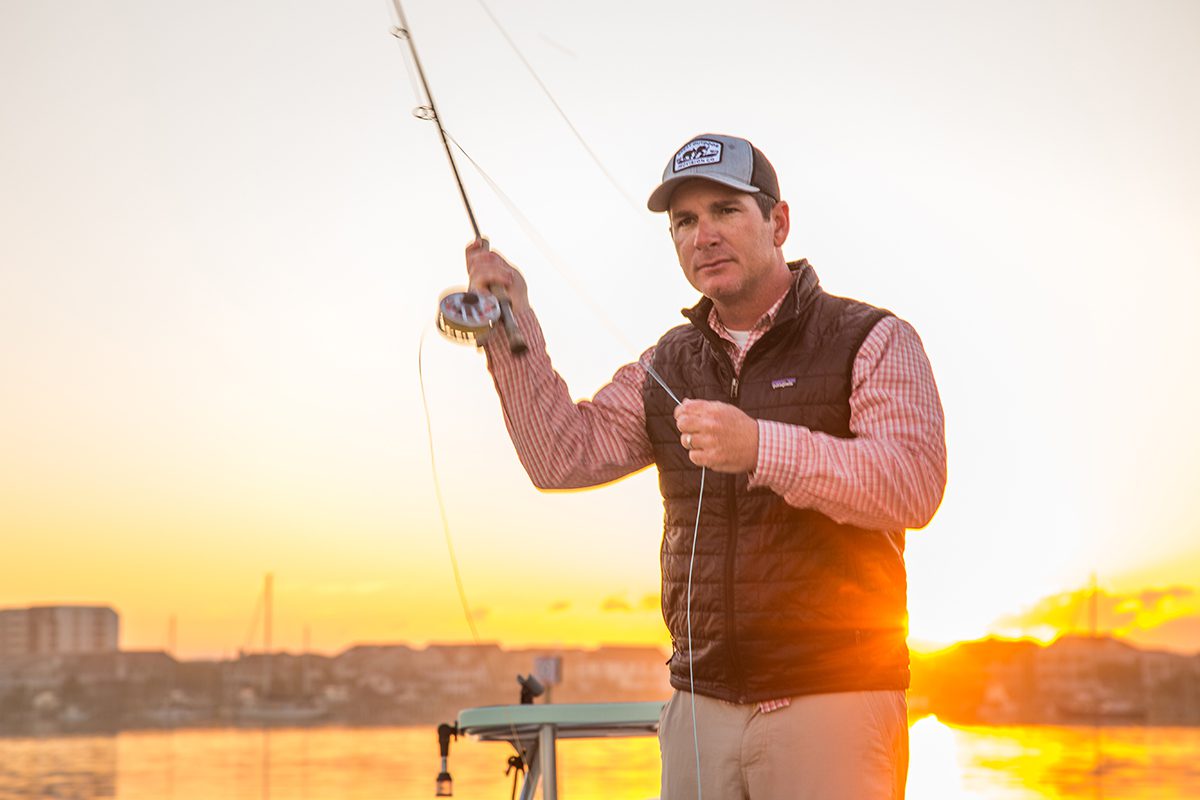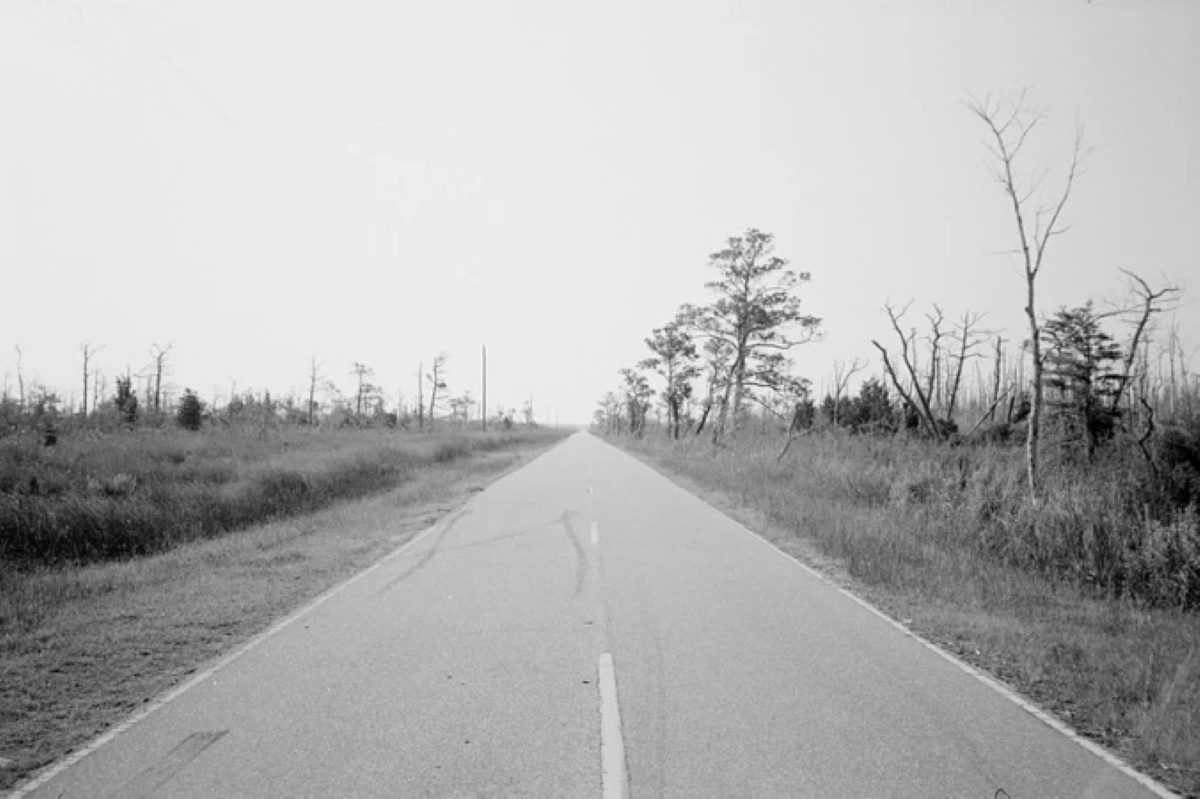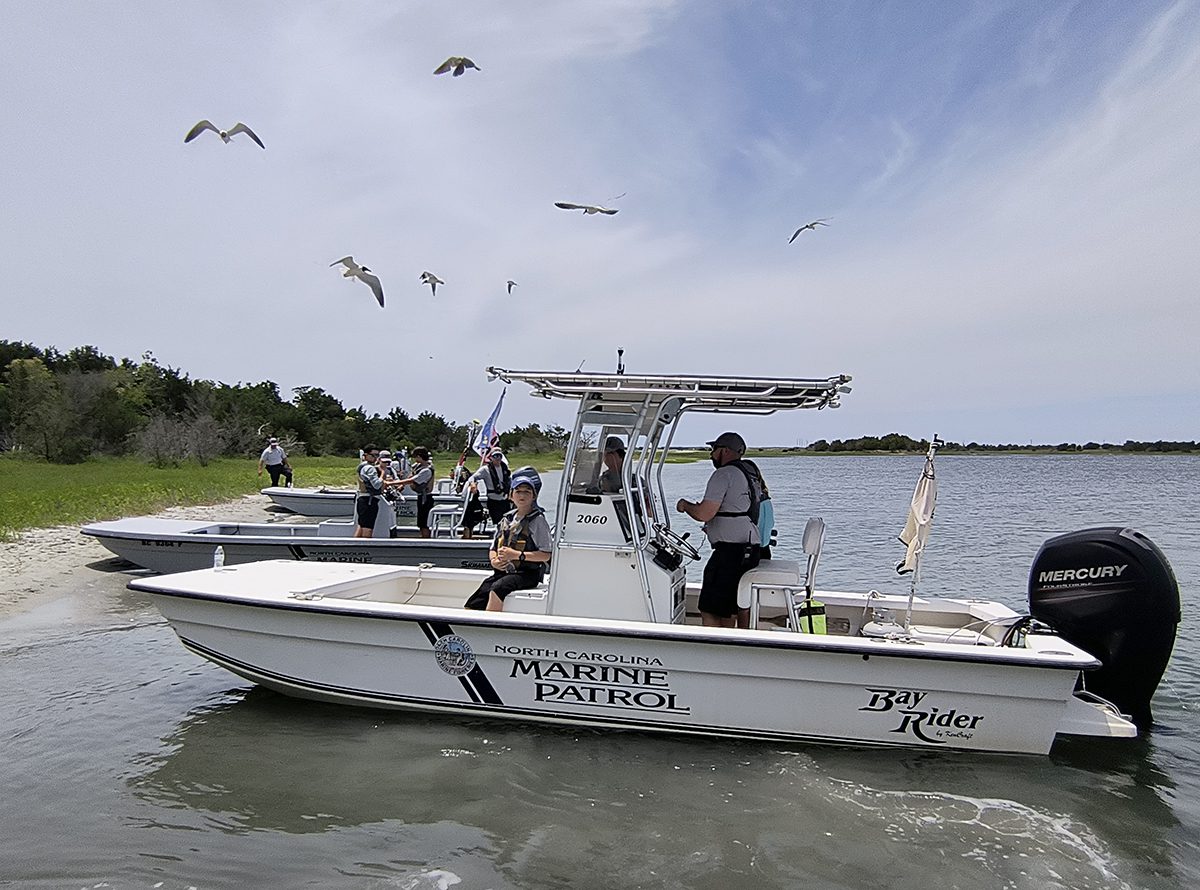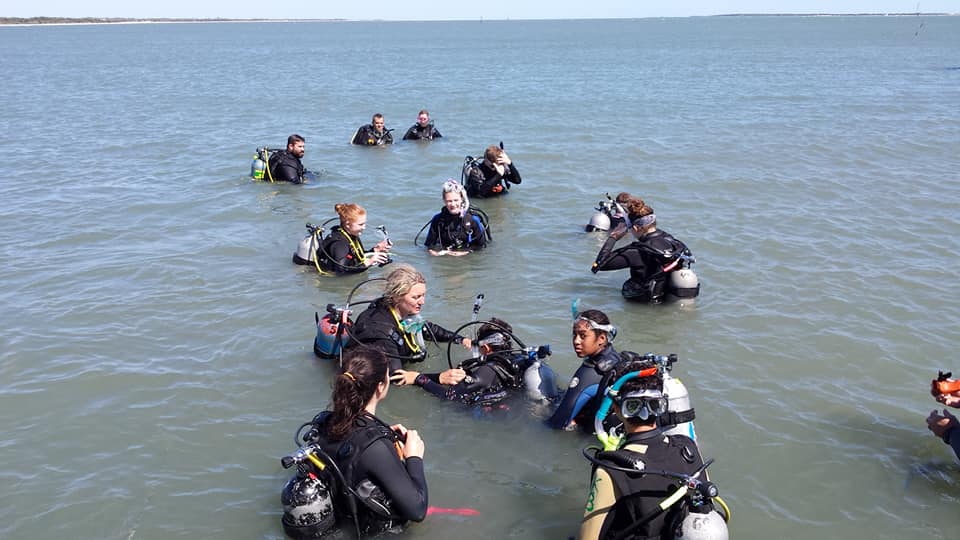
In 2016, Janelle Fleming founded MERROW, the Marine Education, Research and Recovery for the Oceans Worldwide.
According to its website, the nonprofit organization based in Morehead City serves as “a call to action for the Ocean Environment” and “seeks to understand and promote educational and scientific research that benefits the oceans and the organisms that use them.”
Sponsor Spotlight
Fleming, who has a doctorate in physical oceanography and biological oceanography from University of North Carolina Chapel Hill, started a consulting company with her husband and also works as a researcher and scuba diving instructor.
“The area for citizen scientists is growing so much,” Fleming said. “People are wanting to participate, they’re wanting to do what they can, and a lot of them have a science background. Some of them don’t, but they’re very willing to work.”
MERROW encourages people of all ages to get involved in ocean recovery, and Fleming noticed how eager young people were to learn about the world while figuring out their place in it.
“We hear catastrophe stories all the time on the news, but this was a way for them to actually do something about it,” she said.
Sponsor Spotlight
In 2019, she helped set up a North Carolina branch of SCUBAnauts, which, until then, had only ever been in Florida.
“It was kind of like the Boy Scout Sea Scouts, but more focused on scuba diving,” Fleming said. “And I just knew that that was the exact thing that I wanted to do.”
They had 10 participants throughout 2019, and now have a steady attendance of dozen kids between the ages of 12 and 16 and their parents.
“The cool thing about the program is it’s not a drop-off program,” Fleming said. “You’re actually incorporating the parents as well. So each person that participates, they need to have a parent who is also willing to do it. They don’t necessarily have to scuba dive, but they do need to be trained in terms of first aid and CPR, and everyone gets a background check following Boy Scouts’ standards.”
Bryn Fleming, 15, a SCUBAnaut First Class, was excited to join her mom.
“I was really excited about it because I would get to dive all the time,” Bryn said, “plus I’d get to spend more time with some of my friends who I don’t see as often since we don’t go to the same school. It’s really fun!”
“We have monthly meetings (where) we cover the scientific material,” Janelle said. “It’s, in general, a four-year program, because oceanography is the study of four different disciplines – more if you include everything that’s in it.”
Oceanography includes chemical, biological, physical and geological trends.
“In 2019, we started with the geological trend,” Janelle said. In 2020, they covered biological.
“This year, we’re starting with chemical oceanography. We just had our first meeting on Friday (Jan. 15).” This meeting, along with one on Jan 16, featured an introduction to chemical oceanography and swim tests.
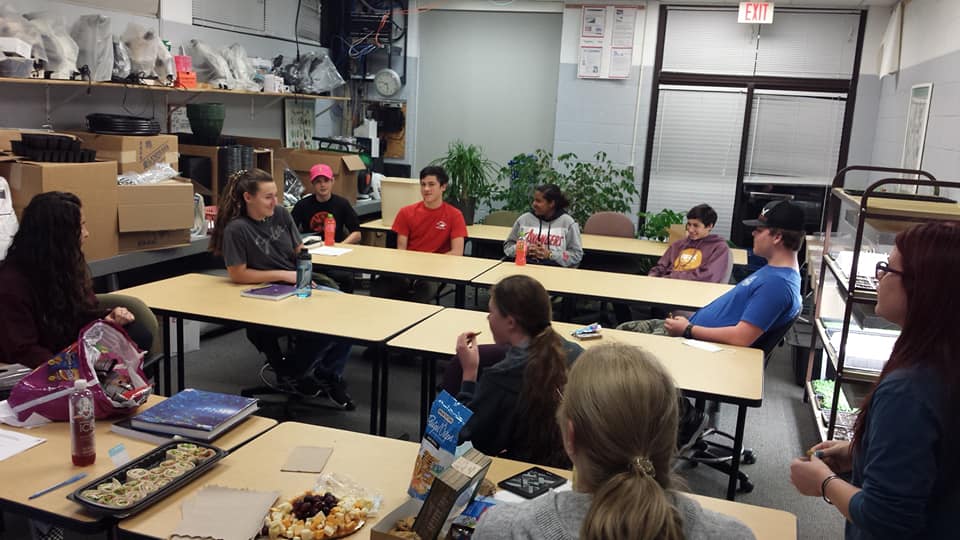
“All of the chapters have the same sort of basic material, but then the other six months out of the year, we apply it directly to our local area,” Janelle said. “On the weekends, when hopefully everybody is available, we will either go do our cleanups or we will do other sets of training, whether it’s actually doing a dive and collecting corals or monitoring them. During the winter months, we try not to dive so much just because the water temperatures are so cold.”
Bryn’s favorite part of being involved with SCUBAnauts is being with people who also have an interest in diving.
“It’s really fun to catch up with all my friends and plan out our next dives,” she said. “I don’t get to see the other SCUBAnauts a whole lot in winter …so it’s nice to see everybody again. Plus, there’s food.”
“They learn the basics of rescue techniques, in case there are any issues underwater or above water,” Janelle said, which includes first aid CPR training, neurological O2 administration and hazardous marine life injuries. And if they’ve been out of the water for six months or more, they need to refresh their skills.
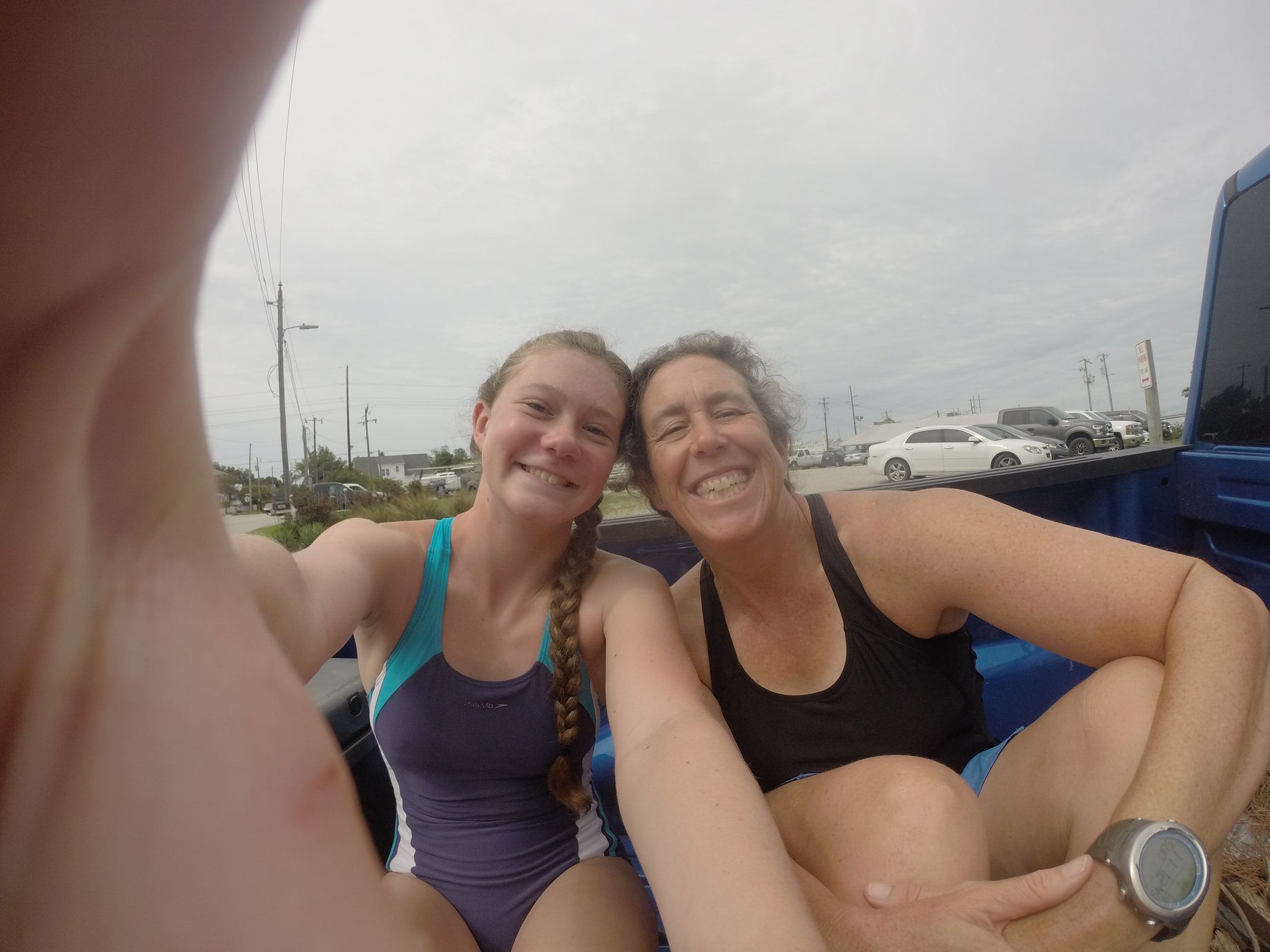
“At the end of the training, they actually become a AAUS science diver,” Janelle said. AAUS, the American Academy of Underwater Sciences, is an umbrella organization for science diving. “People who dive under their auspices can collaborate with government agencies like NOAA or the National Park Service. And they can work with other universities and other research projects through reciprocity.”
Twice a year, the SCUBAnauts will do an underwater beach cleanup that includes an above ground cleanup as they walk to the site. They often visit Radio Island, an island between Morehead City and Beaufort made out of dredge spoil, and now also features a rock jetty.
“Radio Island is frequented by quite a lot of people in the summertime and there’s often lots of trash, unfortunately,” Janelle said. “The students learn how to conduct transect and quadrat surveys, they learn the invertebrates and vertebrates, they also know how to identify the corals and whether they have stony coral tissue loss disease, and they’ve outplanted the coral and monitored them.”
These meetings have given the SCUBAnauts the opportunity to interact with a variety of marine life. “I’ve gotten to see tons of sharks and various other marine life, both at Radio and diving offshore,” Bryn said. “I actually saw a huge stingray on a night dive at Radio.”
“One experience that I had with my son just this past summer was at Radio Island,” Janelle said. “There was an octopus that was outside of the rock crevices. … My son put his hand out to just kind of see what it would do and the octopus reached a tentacle out and kind of wrapped around his finger.”
The SCUBAnauts also get to participate in CHOW, the Capitol Hill Ocean Week.
“A group that’s chosen, based on their applications and interviews, goes to Capitol Hill, and they talk to their local senators about marine issues that are important to them,” Janelle said. “They’ll meet and learn how to interact with our senators and our representatives.”
Janelle believes that even if you aren’t a diver, the more you know about ocean relief, the more you can contribute to it.
“The better educated you are on even the different techniques that scientists use, the more informed you are. And the more informed, the better able you are to make decisions,” she said.
Bryn takes environmental problems very seriously.
“(These issues) might not affect you right now, but what about in 10 years, when your waterfront property is 6 feet under water because of sea level rise?” she said. “What about when you have to pay a small fortune for edible, nonpoisonous seafood, because ocean acidification pollution has killed 90% of the world’s sea life? Try to solve the problems we’re facing now, because if you don’t, the consequences will be disastrous.”
She also believes it’s never too early for kids to start protecting the environment.
“While it’s tempting to just expect that our parents and teachers will figure out a way to protect the environment, odds are that the problems affecting the environment will still be ongoing by the time we’re old enough to vote,” she said. “We’re the people that will have to figure out what to do with the environment.”
“(Young people) are our future,” Janelle said. “And if we can be good stewards, and provide a good example or a model, then they will also be a good steward and also models for the future, for their own generation and for the generations that come after them as well.”




